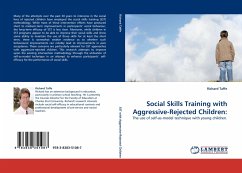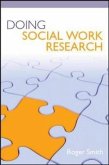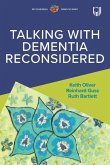Many of the attempts over the past 30 years to intervene in the social lives of rejected children have employed the social skills training (SST) methodology. While most of these intervention efforts have produced short to medium-term improvements in participants social behaviour, the long-term efficacy of SST is less clear. Moreover, while children in SST programs appear to be able to improve their social skills and show some ability to maintain the use of those skills for at least the short term, there is somewhat weaker evidence as to whether such behavioural improvements can reliably lead to improvements in peer acceptance. These concerns are particularly relevant for SST approaches with aggressive-rejected children. This research attempts to improve upon the existing intervention methodology through the utilisation of self-as-model technique in an attempt to enhance participants self-efficacy for the performance of social skills.
Bitte wählen Sie Ihr Anliegen aus.
Rechnungen
Retourenschein anfordern
Bestellstatus
Storno








